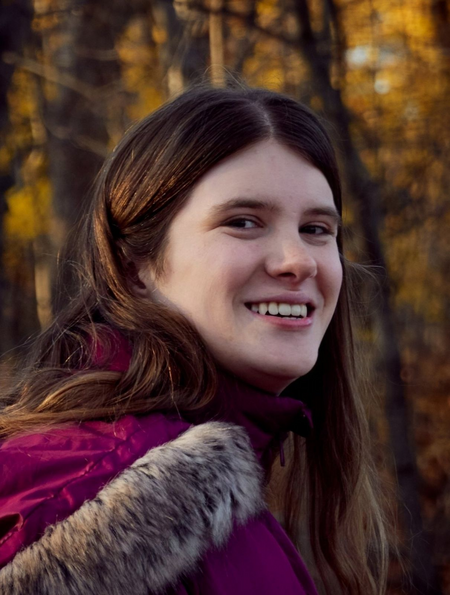Please visit the main Hydro website to learn more!
Hydro: Software that Runs at Every Scale
Publications
Flo: A Semantic Foundation for Progressive Stream Processing
Streaming systems are present throughout modern applications, processing continuous data in real-time. Existing streaming languages have a variety of semantic models and guarantees that are often incompatible. Yet all these languages are considered “streaming”—what do they have in common? In this paper, we identify two general yet precise semantic properties: streaming progress and eager execution. Together, they ensure that streaming outputs are deterministic and kept fresh with respect to streaming inputs. We formally define these properties in the context of Flo, a parameterized streaming language that abstracts over dataflow operators and the underlying structure of streams. It leverages a lightweight type system to distinguish bounded streams, which allow operators to block on termination, from unbounded ones. Furthermore, Flo provides constructs for dataflow composition and nested graphs with cycles. To demonstrate the generality of our properties, we show how key ideas from representative streaming and incremental computation systems—Flink, LVars, and DBSP—have semantics that can be modeled in Flo and guarantees that map to our properties.
Proceedings of the ACM on Programming Languages (PACMPL) Volume 7, No. PLDI,
2025
Initial Steps Toward a Compiler for Distributed Programs
In the Hydro project we are designing a compiler toolkit that can optimize for the concerns of distributed systems, including scale-up and scale-down, availability, and consistency of outcomes across replicas. This invited paper overviews the project, and provides an early walk-through of the kind of optimization that is possible. We illustrate how type transformations as well as local program transformations can combine, step by step, to convert a single-node program into a variety of distributed design points that offer the same semantics with different performance and deployment characteristics.
Proceedings of the 5th workshop on Advanced tools, programming languages, and PLatforms for Implementing and Evaluating algorithms for Distributed systems,
2023
Keep CALM and CRDT On
Despite decades of research and practical experience, developers have few tools for programming reliable distributed applications without resorting to expensive coordination techniques. Conflict-free replicated datatypes (CRDTs) are a promising line of work that enable coordination-free replication and offer certain eventual consistency guarantees in a relatively simple object-oriented API. Yet CRDT guarantees extend only to data updates; observations of CRDT state are unconstrained and unsafe. We propose an agenda that embraces the simplicity of CRDTs, but provides richer, more uniform guarantees. We extend CRDTs with a query model that reasons about which queries are safe without coordination by applying monotonicity results from the CALM Theorem, and lay out a larger agenda for developing CRDT data stores that let developers safely and efficiently interact with replicated application state.
Proceedings of the VLDB endowment, Vol. 16 No. 4,
2023
Katara: Synthesizing CRDTs with Verified Lifting
Conflict-free replicated data types (CRDTs) are a promising tool for designing scalable, coordination-free distributed systems. However, constructing correct CRDTs is difficult, posing a challenge for even seasoned developers. As a result, CRDT development is still largely the domain of academics, with new designs often awaiting peer review and a manual proof of correctness. In this paper, we present Katara, a program synthesis-based system that takes sequential data type implementations and automatically synthesizes verified CRDT designs from them. Key to this process is a new formal definition of CRDT correctness that combines a reference sequential type with a lightweight ordering constraint that resolves conflicts between noncommutative operations. Our process follows the tradition of work in verified lifting, including an encoding of correctness into SMT logic using synthesized inductive invariants and hand-crafted grammars for the CRDT state and runtime. Katara is able to automatically synthesize CRDTs for a wide variety of scenarios, from reproducing classic CRDTs to synthesizing novel designs based on specifications in existing literature. Crucially, our synthesized CRDTs are fully, automatically verified, eliminating entire classes of common errors and reducing the process of producing a new CRDT from a painstaking paper proof of correctness to a lightweight specification.
Proceedings of the ACM in Programming Languages, Vol. 6, No. OOPSLA2, Article 173,
2022
New Directions in Cloud Programming
Nearly twenty years after the launch of AWS, it remains difficult for most developers to harness the enormous potential of the cloud. In this paper we lay out an agenda for a new generation of cloud programming research aimed at bringing research ideas to programmers in an evolutionary fashion. Key to our approach is a separation of distributed programs into a PACT of four facets: Program semantics, Availablity, Consistency and Targets of optimization. We propose to migrate developers gradually to PACT programming by lifting familiar code into our more declarative level of abstraction. We then propose a multi-stage compiler that emits humanreadable code at each stage that can be hand-tuned by developers seeking more control. Our agenda raises numerous research challenges across multiple areas including language design, query optimization, transactions, distributed consistency, compilers and program synthesis.
The 11th Conference on Innovative Data Systems Research (CIDR ‘21),
2021
